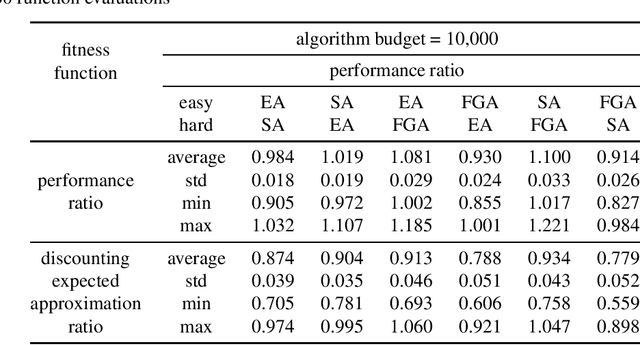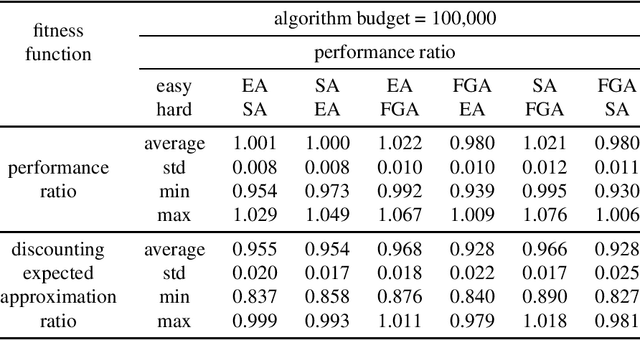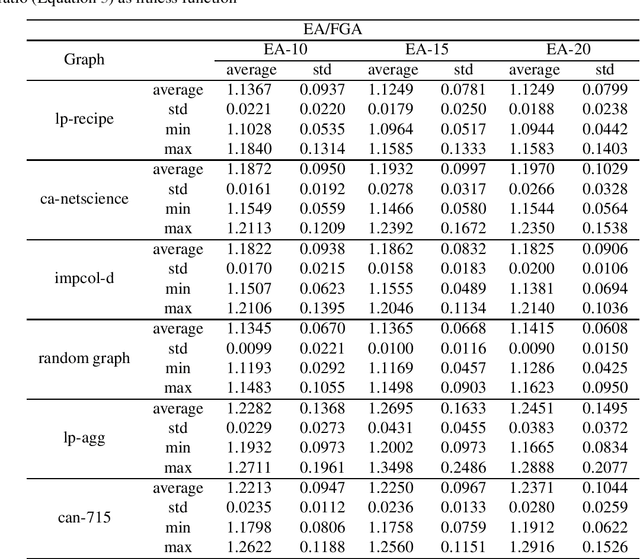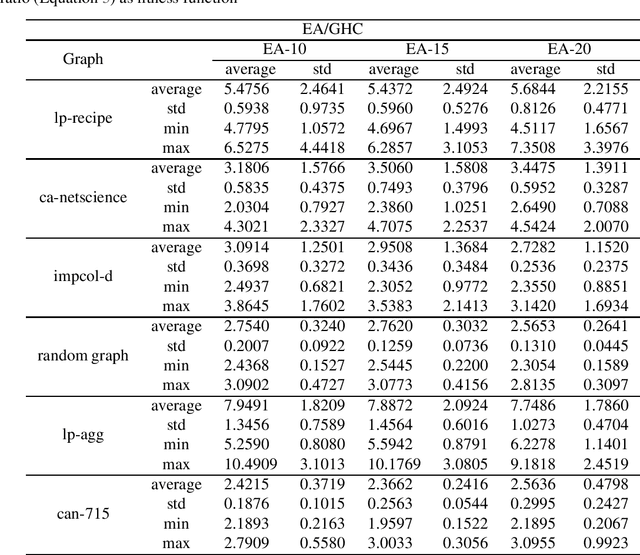Saba Sadeghi Ahouei
Feature-based Evolutionary Diversity Optimization of Discriminating Instances for Chance-constrained Optimization Problems
Jan 24, 2025Abstract:Algorithm selection is crucial in the field of optimization, as no single algorithm performs perfectly across all types of optimization problems. Finding the best algorithm among a given set of algorithms for a given problem requires a detailed analysis of the problem's features. To do so, it is important to have a diverse set of benchmarking instances highlighting the difference in algorithms' performance. In this paper, we evolve diverse benchmarking instances for chance-constrained optimization problems that contain stochastic components characterized by their expected values and variances. These instances clearly differentiate the performance of two given algorithms, meaning they are easy to solve by one algorithm and hard to solve by the other. We introduce a $(\mu+1)~EA$ for feature-based diversity optimization to evolve such differentiating instances. We study the chance-constrained maximum coverage problem with stochastic weights on the vertices as an example of chance-constrained optimization problems. The experimental results demonstrate that our method successfully generates diverse instances based on different features while effectively distinguishing the performance between a pair of algorithms.
Evolving Reliable Differentiating Constraints for the Chance-constrained Maximum Coverage Problem
May 29, 2024



Abstract:Chance-constrained problems involve stochastic components in the constraints which can be violated with a small probability. We investigate the impact of different types of chance constraints on the performance of iterative search algorithms and study the classical maximum coverage problem in graphs with chance constraints. Our goal is to evolve reliable chance constraint settings for a given graph where the performance of algorithms differs significantly not just in expectation but with high confidence. This allows to better learn and understand how different types of algorithms can deal with different types of constraint settings and supports automatic algorithm selection. We develop an evolutionary algorithm that provides sets of chance constraints that differentiate the performance of two stochastic search algorithms with high confidence. We initially use traditional approximation ratio as the fitness function of (1+1)~EA to evolve instances, which shows inadequacy to generate reliable instances. To address this issue, we introduce a new measure to calculate the performance difference for two algorithms, which considers variances of performance ratios. Our experiments show that our approach is highly successful in solving the instability issue of the performance ratios and leads to evolving reliable sets of chance constraints with significantly different performance for various types of algorithms.
Benchmarking Algorithms for Submodular Optimization Problems Using IOHProfiler
Feb 02, 2023Abstract:Submodular functions play a key role in the area of optimization as they allow to model many real-world problems that face diminishing returns. Evolutionary algorithms have been shown to obtain strong theoretical performance guarantees for a wide class of submodular problems under various types of constraints while clearly outperforming standard greedy approximation algorithms. This paper introduces a setup for benchmarking algorithms for submodular optimization problems with the aim to provide researchers with a framework to enhance and compare the performance of new algorithms for submodular problems. The focus is on the development of iterative search algorithms such as evolutionary algorithms with the implementation provided and integrated into IOHprofiler which allows for tracking and comparing the progress and performance of iterative search algorithms. We present a range of submodular optimization problems that have been integrated into IOHprofiler and show how the setup can be used for analyzing and comparing iterative search algorithms in various settings.
 Add to Chrome
Add to Chrome Add to Firefox
Add to Firefox Add to Edge
Add to Edge